ROMA HOLOCAUST MEMORIAL DAY 2018: Dorset remembers ‘The Night of the Gypsies’
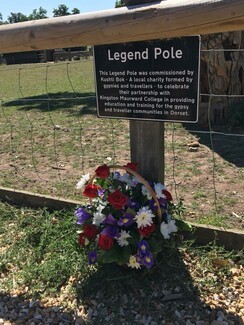
On 2nd August 2018 a service was held at Kingston Maurward College, Dorchester, to remember the many Roma killed in Auschwitz on this day in 1944, known as ‘The Night of the Gypsies.’ The service was hosted by Kushti Bok, a Dorset charity that supports Travellers and Gypsies. The event, the second of its kind in Dorset and the only UK memorial outside of London, was attended by people from the Gypsy and Traveller communities and their friends and family, as well as local dignitaries and community representatives from the NHS, the Fire Service, the Police, Development Education in Dorset (DEED) and South West Dorset Multicultural Network.
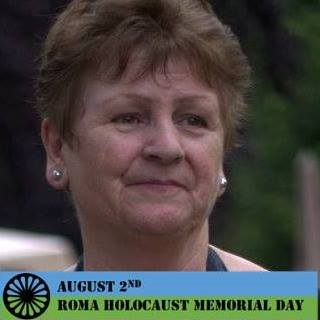
The event came about after Betty Smith-Billington, well-known local Romany Gypsy and chair of Kushti Bok, was part of a group of ten who visited Krakow for the annual Dik Hai Na Bister (Look and never forget) event in 2016. The ten delegates from all over the UK went to honour their fellow Roma who died at the concentration camp Auschwitz-Birkenau during the Holocaust. One of the days was dedicated to attending the anniversary of ‘The Night of the Gypsies.’ It is thought that 2,897 Sinti and Roma – old people, women, children and the sick – were annihilated in one night on that tragic summer’s day in 1944. An attempt had been made on May 16th by the SS to extinguish the Gypsy camp, but due to the resistance of the Gypsies it was not successful.
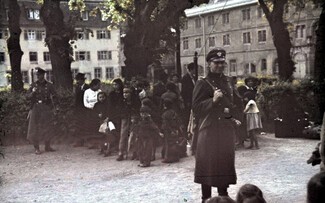
The anniversary also remembers the half a million Roma who suffered and died in the Holocaust, 23,000 of whom died in Auschwitz-Birkenau. These atrocities were denied by the Nazis (and, as we know, some people today deny the Holocaust took place at all). There was no-one to speak for the Romany people at the Nuremberg trials. Although what happened to Jewish people during the Holocaust is widely documented, many people are not aware that so many Roma died during the Holocaust, as well as other minorities persecuted by the Nazis such as disabled, gay, mentally ill and black people.
On her return from Krakow Betty was determined to spread the word about what had happened, and to hold a Roma Memorial service locally. Betty says, ‘Having visited that horrible place, that sad, sad place where no birds ever sing, we the Krakow ten decided that we would pledge to do whatever we could to make sure these atrocities would never be forgotten. If it gets erased from people’s memories there is a chance we could go full circle and history could repeat itself. Racism and persecution is still rife against the Romany people. We have to educate people and tell the stories.’ Betty said that for years it seemed as though ‘we didn't matter, we were the “Forgotten People of the Holocaust”, but no more.’
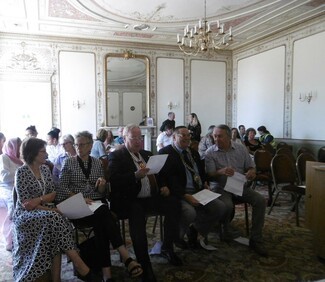
The moving memorial service was held in the Pengelly Room at Kingston Maurward; the audience listened to terrible stories as the sounds of birdsong and children’s voices floated in through the open doors. The stories contrasted sharply with the surroundings: an elegant, high-ceilinged, sunlit room, with a framed view of landscaped grounds rolling down towards a lake. The service included a number of poems, talks and a film.
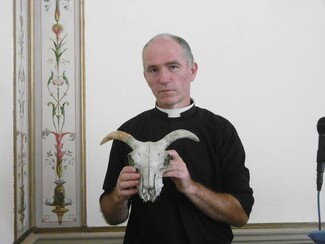
For those from the non-Gypsy community, it was very educational, and parallels were drawn between the experiences of the Roma during the Second World War, and today, such as the European Roma being targeted by vigilantes in The Ukraine. Persecution also takes place in the UK, where racism towards this ethnic group persists, sometimes enshrined in the law. The Romany community are essentially being ‘defined out of existence’ due to new government legislation brought out in August 2016 which states that if a Gypsy doesn't travel for work they lose their ‘gypsy status’ for planning and accommodation purposes. If however they do travel, Gypsies find that local and national Government have blocked off stopping places and advised landowners not to allow them to pull onto their farms or land.
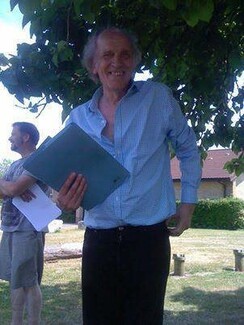
Ray Wills, author of Where the River Bends and Gypsy Story Tellers, spoke of his links with the Dorset Romany people. Reverend Roger Redding, MBE, sang a beautiful rendition of The Hawthorn and the Clover. Using a goat’s skull as a prop, Reverend Jonathan Herbert, Chaplain for Gypsies and Travellers, spoke eloquently on the history of scapegoating, how human societies have done this for centuries, and why it is important not to scapegoat people. A heart-wrenching film, Porajmos (a word used for the Romany Holocaust, which means ‘devouring’) was shown. The film documented a visit to Auschwitz by Elizabeth Small Isaacs and Sally Tucker Woodbury some years ago. Elizabeth spoke of the importance of making the film hard-hitting and difficult to watch, and why it was necessary to include graphic and upsetting images such as those of dying children.
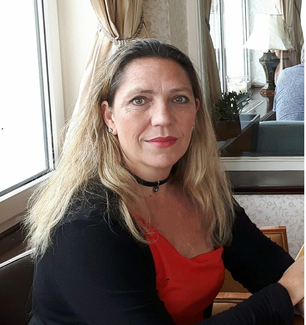
Whilst violinist Matt Tarling played the Gypsy anthem Gelem Gelem the audience was invited to take turns in lighting a candle to remember not only those who died on that horrific August day 74 years ago, but all who suffered and died in the Holocaust and other genocides worldwide. This was followed by a minute’s silence, then a prayer. After the service the audience gathered to share sandwiches, cake and drinks in the common room. There was also an optional walk down to the Animal Park for the blessing of the Kushti Bok sculpture and to lay a floral tribute.
Next year will be the 75th anniversary of ‘The Night of the Gypsies’ and the Roma Holocaust Memorial will again take place at Kingston Maurward College. Betty says, ‘It is important to never forget this day, when there is still so much prejudice against the Romany people, the Holocaust could easily raise its ugly head again. History often repeats itself. So much hate in the world.’
By remembering those who have died, and hearing their stories, we are replacing some of that hate with love, understanding and compassion for our fellow humans. In the current political climate, doing this seems more important than ever. We mustn’t forget, and nor can we allow ourselves to become complacent when we witness prejudice.
By Louisa Adjoa Parker
(Main picture © Rex Webb)
To find out more about the Dorchester Roma Memorial Service and how you can take part in future events, or if you are interested in becoming a member of Kushti Bok, please contact Betty by email: info.kushtibok@gmail.com or visit the website at www.kushtibokdorset.co.uk
Louisa Adjoa Parker is a writer who specialises in telling BAME stories in the south west. She is currently working on a project called We have a Voice Too with DEED and Kushti Bok. If you are from the Gypsy community, based in Dorset, Hampshire or Wiltshire and would like to tell your story, please email louisaparker3@hotmail.com